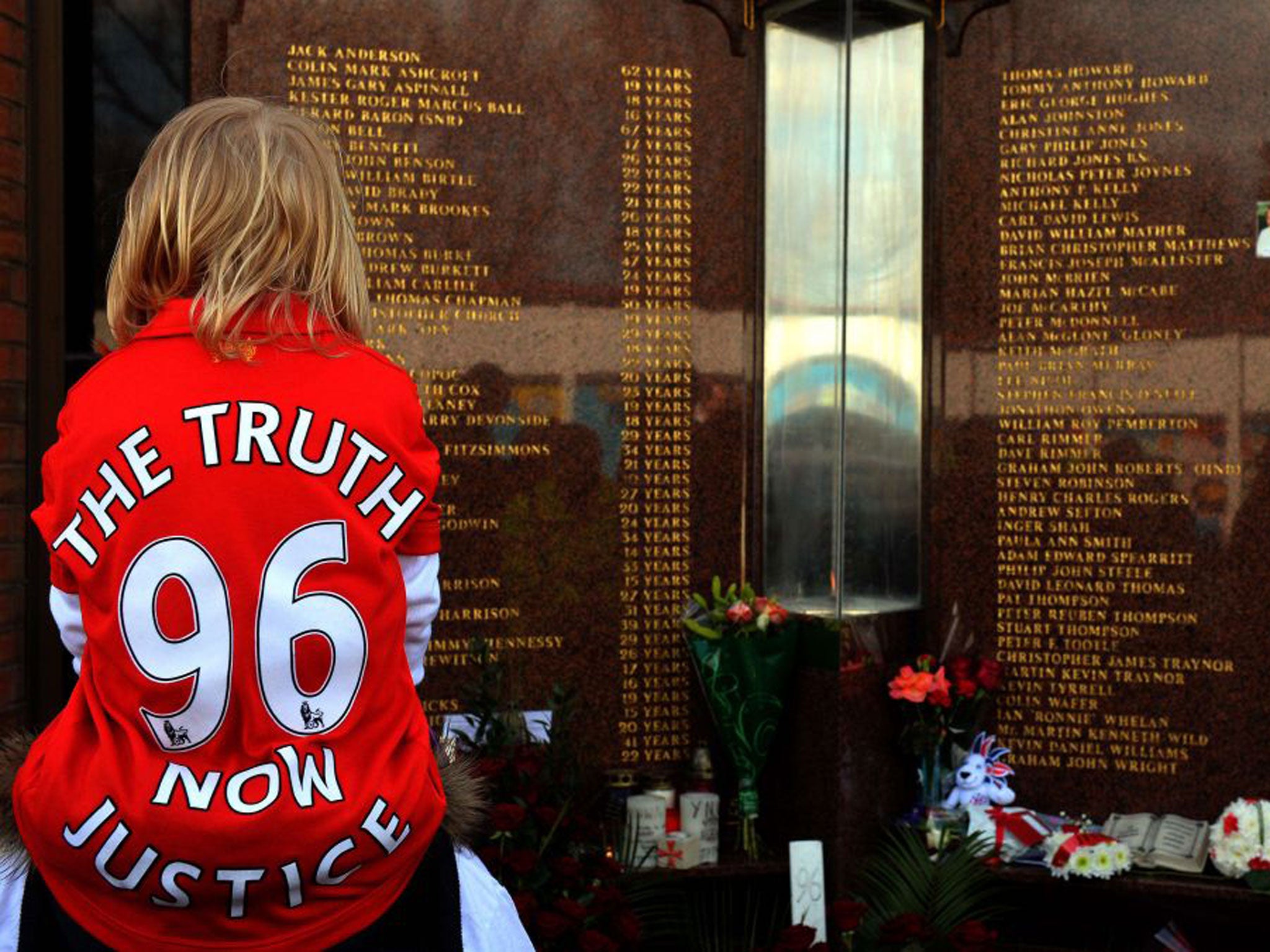Ian Herbert: Out of the darkness springs hope eternal for families ruined by Hillsborough disaster
The last inquest was scarred by degenerating into a private battle

There have been very few new dawns for the Hillsborough families and nearly all of them false, but amid the latest tremors to beset their beloved football team came fragile cause for hope.
The court hearing convened to establish the parameters for the restaged inquests into the 96 victims of British sport's worst disaster was held in a building usually occupied by those in the midst of family anguish – the Principal Registry of the Family Division – which was appropriate. A girl who was 14 when her mother was killed at Sheffield Wednesday's ground did not think she would be middle-aged before sitting here, in the room where they would begin to put the truth straight. One of the QCs, Pete Weatherby, who argued what seemed to be an eminently sensible case about the North-West – and not London – being the best location for the inquests, described how two of those family members he had met and agreed to represent had died before this day arrived.
Typically of the past 24 years, Hillsborough was in the shadows of the news agenda – the Godolphin doping case was unfolding a few doors up on London's High Holborn and most of the cameras had amassed there. But the day the families had waited for did not let them down. When pre-inquest hearings were held first time around, on March 6 1990, it was a few suited men in a room, including the coroner Stefan Popper and the assistant chief constable of the West Midlands police force, which investigated its South Yorkshire's counterparts. They made abysmal plans, one detail of which tells the story. Families were asked to attend inquests hearings in the same Sheffield Medico-Legal centre where they had viewed the bodies of their loved ones, in the days after the disaster.
The rough edges of these past 24 years have bound families together and, perhaps naturally enough, turned some against others. The divisions were still deeply evident, even on this sunny day they'd waited for. The Hillsborough Family Support Group's members (71 of the 96 families) have voted by a strong majority at two Liverpool meetings since last December for London inquests – away from jurors who might harbour anti-Liverpool prejudice and in a place so neutral that no police officer could allege the outcome is prejudiced. The Hillsborough Justice Campaign don't like the idea of making that kind of journey. There will be financial assistance for travel and accommodation for families, though possibly not supporters. The trauma of raking back through tragedy while 230 miles from home is too much, their QC's argument ran.
That issue is setting group against group and the coroner, Lord Justice Goldring, was wise to hold off his judgement until next week, when a written verdict can be delivered with cold logic. But while his decision cannot possibly satisfy everyone, the first signs are that this judge is a strong, decisive and empathetic leader. He was careful to address the families – about 40 of them were in court – and to speak directly to those listening in by video link from Liverpool. He displayed a sense of urgency, dismissing in the course of five minutes a Police Federation notion that the inquests might be delayed for at least three years, possibly six, until criminal proceedings are concluded.
He cited the case of Anne Williams, mother of Hillsborough victim Kevin, who died last week. "Her death is a powerful reminder that there is an urgency attaching to the commencement of the inquest hearings, as well as a need for that investigation to be as full as possible," he said.
He will require a lot more than empathy, and sometimes the judgement of Solomon. Probity and fairness must be afforded to other parties, too. The last inquest "was scarred by degenerating into a private battle," he said. "This will not happen in the new inquests." This felt like a good day for justice.
Subscribe to Independent Premium to bookmark this article
Want to bookmark your favourite articles and stories to read or reference later? Start your Independent Premium subscription today.

Join our commenting forum
Join thought-provoking conversations, follow other Independent readers and see their replies